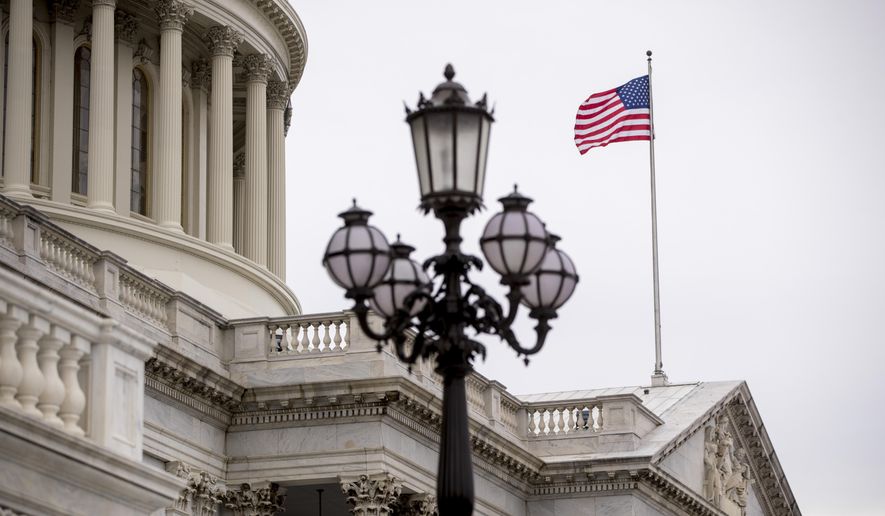Republican and Democratic leaders on Capitol Hill really want to raise lawmakers’ salaries; their rank-and-file members just won’t let them.
Democrats this week shelved plans for a vote on legislation that would have created a cost-of-living increase in lawmakers’ salaries, saying they heard too much opposition from their most vulnerable members, who feared facing political attacks as they run for reelection back home.
They figured it would be a bad look to return home with higher pay, but no progress to show on health care or the other issues on which Democrats ran in 2018.
“We need to be balancing our budget and lowering our deficit before we take on cost of living increases,” Rep. Haley Stevens, a freshman Democrat from Michigan, told reporters. “Putting money back into the pocketbooks of every day Americans, not members of Congress.”
And Rep. Abigail Spanberger, a Democrat who won a GOP-leaning district in Virginia last year, called the salary fight a distraction when Congress “should really be focused on minimum wage workers.”
Ms. Spanberger was part of a 18-member bipartisan coalition that submitted an amendment to block the adjustment from going into effect.
“This Congress has had six months since it convened in January to address these issues but has not. Members from both parties are to blame. And yet, members from both parties seem to think they have earned a pay raise,” said Rep. Brian Fitzpatrick, Pennsylvania Republican and the lead sponsor of the amendment killing the pay raise.
“I am pleased that enough of my colleagues agreed to join me that we were able to force leadership to put this ridiculous raise on hold. I look forward to meeting House leadership at the negotiating table to ensure the Legislative Branch Appropriations Bill doesn’t include any pay increase for myself or any of my colleagues,” he added.
Most senators and representatives earn $174,000 a year in salaries, plus a sizable benefit package. That rate has frozen for a decade. The proposal Democratic leaders wanted to vote on this week would have meant a $4,500 bump in salary.
They thought they had a deal with GOP leaders but they said that fell by the wayside after the National Republican Congressional Committee, the House GOP’s campaign arm, made clear it would use the issue against lawmakers like Mr. Stevens.
Proponents of the pay bump acknowledge it looks bad politically, but called it necessary to improve Congress and ensure that people besides the wealthy can serve.
Rep. Pramila Jayapal, a leading liberal, warned that keeping salaries static encourages lawmakers to leave Congress and become lobbyists, peddling the influence they built up during their time in office.
“I think it lets in corruption,” said Ms. Jayapal, Washington Democrat. “I think it encourages people to leave for lucrative — but not helpful to people — jobs. And I think it keeps people out.”
Party leaders among both Republicans and Democrats said they’re worried not only about lawmakers not being able to make ends meet, but also about staff salaries, which are pegged to lawmakers’ pay — meaning they’ve been limited for years too.
“This is about the institution of the House of Representatives and the United States Senate and our ability to be competitive as an employer and to get the best and brightest,” said House Majority Leader Steny Hoyer, Maryland Democrat.
Mr. Hoyer said a cost-of-living increase isn’t the same as a pay raise, but rather a way to make sure inflation doesn’t outstrip salaries.
The Congressional Research Service says the $174,000-a-year salary has lost 15% of its buying power over the decade since it was last increased.
House Minority Leader Kevin McCarthy said he would like to see a path to an increase, and said he hoped his colleagues would “take a pause” to consider the idea.
“I do not want Congress at the end of the day to only be a place that millionaires serve. This should be a body of the people,” the California Republican said.
But rank-and-file Republicans said they’re not the ones agitating for the raise.
“I don’t know if it has any real groundswell of support,” Rep. Mark Meadows, North Carolina Republican and chairman of the conservative Freedom Caucus, told The Washington Times. “Congress needs to do its job.”
Rep. Nita Lowey, New York Democrat and chairwoman of the House Appropriations Committee, told reporters that she doesn’t think the cost of living issue will come back up soon.
“I never say ’never’ forever. But right now there’s a problem with it,” she said.
• Gabriella Muñoz can be reached at gmunoz@washingtontimes.com.




Please read our comment policy before commenting.